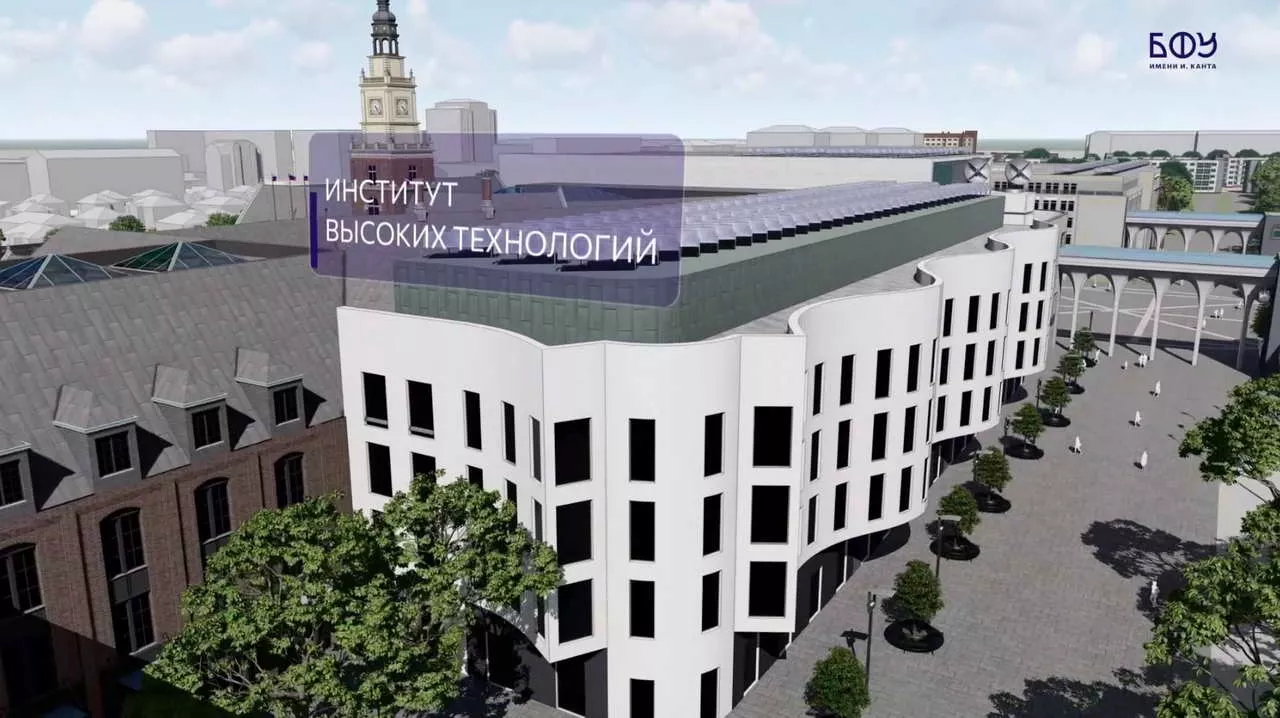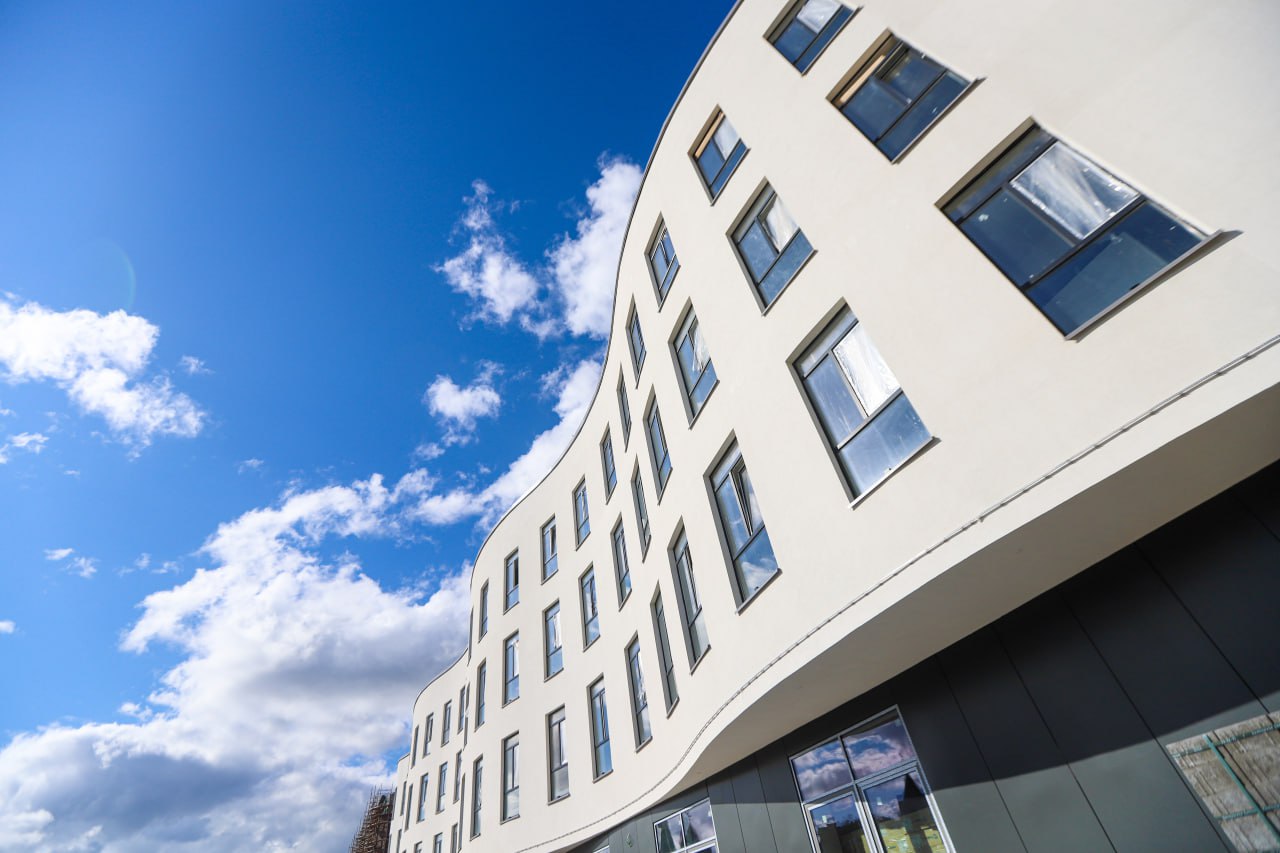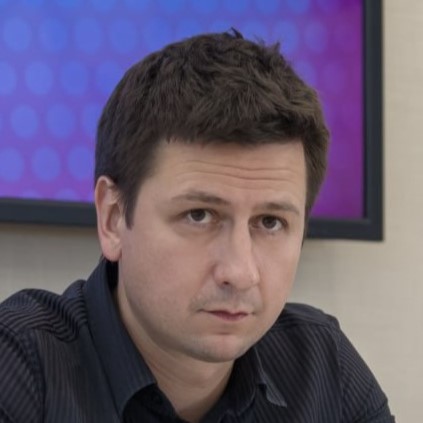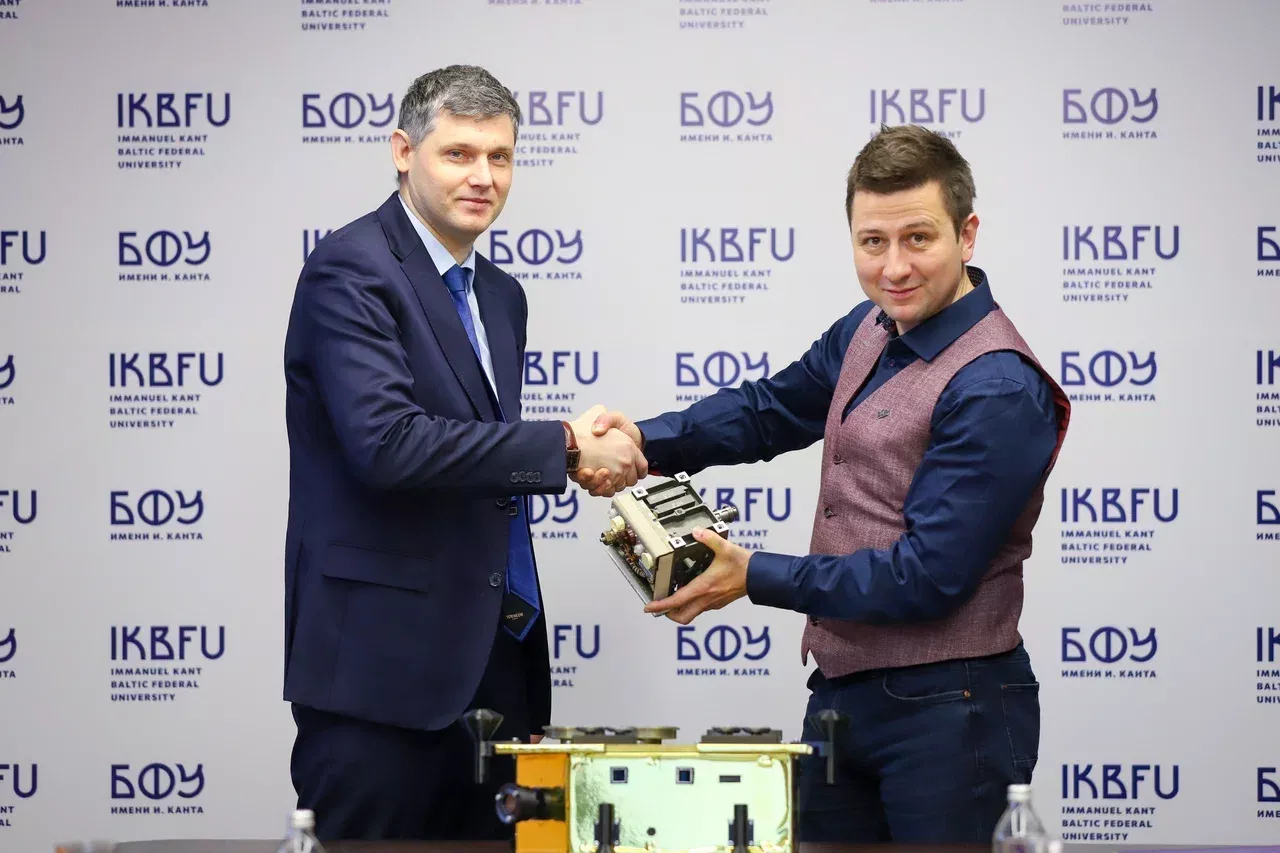
On September 5, the management of the Experimental Design Bureau Fakel (part of the integrated structure of JSC NGO Energomash of the State Corporation Roscosmos) visited the construction site of the Institute of High Technologies building at the Kantiana campus as part of the national project Youth and Children. A Space Laboratory for the Development, Design, and Testing of Spacecraft and Propulsion Systems will be located here — consisting of three classrooms with a total area of 130 square meters.The technical operations of the new research unit will be overseen by Vyacheslav Terentyev, a leading specialist in firing trials at EDB Fakel.The laboratory staff will include not only experienced experts from the enterprise but also doctoral students and six master’s students of the university’s program Physical Processes in Space Propulsion Systems.

By the end of the year, the list of equipment planned for procurement is expected to be approved. It will include among other items a vacuum test bench for spacecraft engine testing and a full-scale test bench for small satellite systems. Additionally, the functions and objectives for the design of small spacecraft of the CubeSat type will be defined. The CubeSat is a miniature satellite measuring 10×10×10 cm, designed for space exploration and observation of other celestial objects. Such satellites enable the testing of new technologies and systems in orbit at reduced costs, as well as the monitoring of environmental and climatic conditions.
| In the initial phase, our aim is to design satellites that will address the practical needs of the Kaliningrad Region. These satellites will be employed for Earth remote sensing, photographic monitoring of agricultural areas, and observation of the Baltic coastline. The data obtained will play a crucial role in the development of agriculture and coastal protection within the region. Furthermore, we intend to expand the functionality of small satellites. The new Kantiana campus will provide the necessary foundation for the implementation of comprehensive research and testing activities. |
| stated Pavel Dronov, Director of JSC EDB Fakel. |
| Such a center addresses personnel development objectives — it will provide training for our specialists from the Baltic Command and Measurement Station, as well as for new professionals. Most importantly, the Center’s practical mission is to receive and process data from spacecraft and to perform real-time flight adjustments, |
| said Pavel Dronov. |

|
Maksim Demin, Acting Rector of the Immanuel Kant Baltic Federal University: |
|
The joint laboratory with EDB Fakel will make it possible to address both engineering and personnel development objectives for the Russian space industry. We are building a coherent and comprehensive development strategy — including personnel training, internship opportunities, employment with a world-renowned company, and joint scientific research. In the new laboratory, scientists and engineers will focus on the development of small spacecraft of the CubeSat type. It is planned that the team will complete the design, as well as the engineering and testing phases, by the autumn of 2027. |
 It should be noted that the construction readiness of the Institute of High Technologies building at the Kantiana campus currently stands at 85%. The building will be equipped with state-of-the-art educational, engineering, and laboratory equipment. Nearly 1,700 students will study at this site.
It should be noted that the construction readiness of the Institute of High Technologies building at the Kantiana campus currently stands at 85%. The building will be equipped with state-of-the-art educational, engineering, and laboratory equipment. Nearly 1,700 students will study at this site. User profile for student
User profile for student
I give consent to the processing of the personal data provided, with Personal Data Processing Policy acquainted
Confirm consent